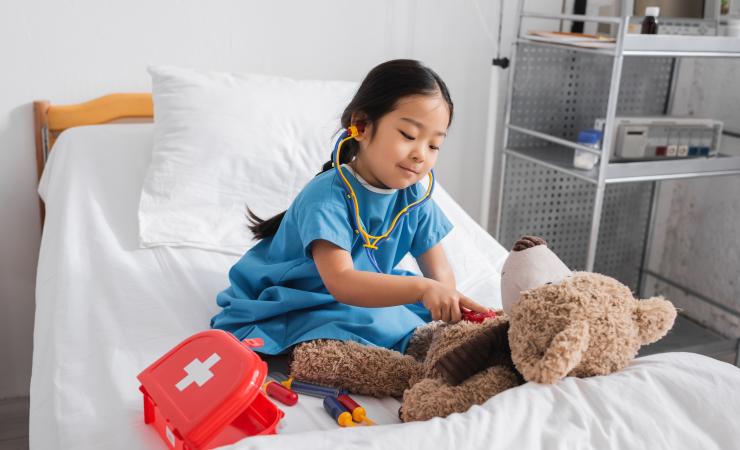Cancer is the first cause of death by disease in children and young people. More than 35,000 cases are diagnosed annually and more than 6,000 young patients die each year.
Yet, only 9 of the 150 cancer medicines approved in the last decade targeted children’s cancer. There are many reasons for this, one of which is the lack of appropriate tools for drugs against children’s cancer to be tested on.
To tackle this, the ITCC-P4 project developed a suite of models specifically for testing new drugs for paediatric cancers, and is now providing those models to drugmakers for a price via a non-profit association.
Models are important tools for researchers that give an indication of how the human body – and cancer tumours – might respond to specific medications. Drugs are tested first on models to gauge how effective they might be before progressing to human trials.
Although there are many models established for researching drugs for adult cancers, the same is not true for children’s cancers. In children, cancers are often more aggressive and behave differently to the adult versions. Children’s immune systems also behave differently to adults, so testing on adult models is not sufficient.
“Less has been invested in developing models of kids’ cancer relative to the big four of adult cancers – the lack of readily available models (for children’s cancer) was an issue,” says Lou Stancato, of the Indiana Biosciences Research Institute and the Indiana University School of Medicine, speaking at the In conversation with ITCC-P4 online event held by IHI on 24 April 2025.
“Any models often existed solely in academic labs and were not accessible. So children were already at a deficit, because the research tools needed to identify anti-cancer drugs were not available to the community.”
The public-private framework offered by the IMI ITCC-P4 project was the perfect setting to develop models specific to children’s cancer and then make them available to drugmakers through the establishment of a sustainable non-profit organisation.
“The goal of the project was to create a preclinical platform to run early qualification of anti-cancer medication on the newly established repertoire of paediatric models,” says Gilles Vassal, paediatric oncologist at the Gustave Roussy Comprehensive Cancer Center and Chief Operating Officer of the newly-formed ITCC-P4 GmbH.
“We have established a comprehensive repertoire of new paediatric tumour models, with more than 300 established from the tumours of patients. We now represent more than 20 different paediatric cancers.”
Thanks to the models developed by ITCC-P4, the barriers to developing drugs for childhood cancer have been lowered.
“For the first time paediatric research is at an even footing with what’s been available to adult cancer research for decades,” says Stancato. “By creating this diverse panel of tumour models, we now have a resource that literally anyone can turn to test their drugs.”
For Nicole Scobie, whose son survived a childhood cancer, these results couldn’t come fast enough.
“The most important aspect is the need for speed, because children with cancer can’t wait. By developing a robust platform for pre-clinical testing, ITCC-P4 has enabled faster identification and prioritisation of drugs which could become effective treatments for children,” she says. “It’s an acceleration that could lead to quicker availability of drugs to treat childhood cancer.”
She also praised ITCC-P4 for continuing to re-invest any profits made to spur on their research and innovation wing. Gilles confirmed that, as a non-profit association, research into new and improved models would continue.
“This is not the end of the story. There are brand-new tumour models that could be developed. We need better models to evaluate a new oncology compound. We need to figure out which organoids could help facilitate the evaluation of this new medicine. We will continue in our R&D to develop further, more predictable and relevant models,” he promised.
He called on industry to see the opportunity posed by ITCC-P4 and to make use of the models so that new treatments reach children faster.
“I have a message for industry: don’t give up on childhood cancer. We have built this important asset to help you define which drugs to move forward with, to make it more efficient and to address the needs of children and adolescents with cancer.”
ITCC-P4 was supported by the Innovative Medicines Initiative, a partnership between the European Union and the European pharmaceutical industry.
